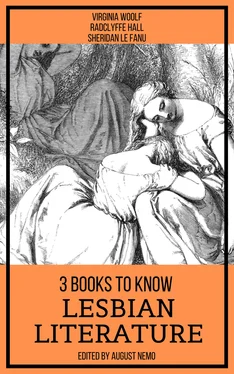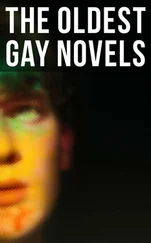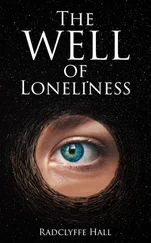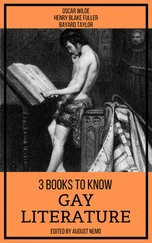He soon perceived, however, that the battles which Sir Miles and the rest had waged against armed knights to win a kingdom, were not half so arduous as this which he now undertook to win immortality against the English language. Anyone moderately familiar with the rigours of composition will not need to be told the story in detail; how he wrote and it seemed good; read and it seemed vile; corrected and tore up; cut out; put in; was in ecstasy; in despair; had his good nights and bad mornings; snatched at ideas and lost them; saw his book plain before him and it vanished; acted his people's parts as he ate; mouthed them as he walked; now cried; now laughed; vacillated between this style and that; now preferred the heroic and pompous; next the plain and simple; now the vales of Tempe; then the fields of Kent or Cornwall; and could not decide whether he was the divinest genius or the greatest fool in the world.
It was to settle this last question that he decided after many months of such feverish labour, to break the solitude of years and communicate with the outer world. He had a friend in London, one Giles Isham, of Norfolk, who, though of gentle birth, was acquainted with writers and could doubtless put him in touch with some member of that blessed, indeed sacred, fraternity. For, to Orlando in the state he was now in, there was a glory about a man who had written a book and had it printed, which outshone all the glories of blood and state. To his imagination it seemed as if even the bodies of those instinct with such divine thoughts must be transfigured. They must have aureoles for hair, incense for breath, and roses must grow between their lips—which was certainly not true either of himself or Mr Dupper. He could think of no greater happiness than to be allowed to sit behind a curtain and hear them talk. Even the imagination of that bold and various discourse made the memory of what he and his courtier friends used to talk about—a dog, a horse, a woman, a game of cards—seem brutish in the extreme. He bethought him with pride that he had always been called a scholar, and sneered at for his love of solitude and books. He had never been apt at pretty phrases. He would stand stock still, blush, and stride like a grenadier in a ladies' drawing-room. He had twice fallen, in sheer abstraction, from his horse. He had broken Lady Winchilsea's fan once while making a rhyme. Eagerly recalling these and other instances of his unfitness for the life of society, an ineffable hope, that all the turbulence of his youth, his clumsiness, his blushes, his long walks, and his love of the country proved that he himself belonged to the sacred race rather than to the noble—was by birth a writer, rather than an aristocrat—possessed him. For the first time since the night of the great flood he was happy.
He now commissioned Mr Isham of Norfolk to deliver to Mr Nicholas Greene of Clifford's Inn a document which set forth Orlando's admiration for his works (for Nick Greene was a very famous writer at that time) and his desire to make his acquaintance; which he scarcely dared ask; for he had nothing to offer in return; but if Mr Nicholas Greene would condescend to visit him, a coach and four would be at the corner of Fetter Lane at whatever hour Mr Greene chose to appoint, and bring him safely to Orlando's house. One may fill up the phrases which then followed; and figure Orlando's delight when, in no long time, Mr Greene signified his acceptance of the Noble Lord's invitation; took his place in the coach and was set down in the hall to the south of the main building punctually at seven o'clock on Monday, April the twenty-first.
Many Kings, Queens, and Ambassadors had been received there; Judges had stood there in their ermine. The loveliest ladies of the land had come there; and the sternest warriors. Banners hung there which had been at Flodden and at Agincourt. There were displayed the painted coats of arms with their lions and their leopards and their coronets. There were the long tables where the gold and silver plate was stood; and there the vast fireplaces of wrought Italian marble where nightly a whole oak tree, with its million leaves and its nests of rook and wren, was burnt to ashes. Nicholas Greene, the poet stood there now, plainly dressed in his slouched hat and black doublet, carrying in one hand a small bag.
That Orlando as he hastened to greet him was slightly disappointed was inevitable. The poet was not above middle height; was of a mean figure; was lean and stooped somewhat, and, stumbling over the mastiff on entering, the dog bit him. Moreover, Orlando for all his knowledge of mankind was puzzled where to place him. There was something about him which belonged neither to servant, squire, or noble. The head with its rounded forehead and beaked nose was fine, but the chin receded. The eyes were brilliant, but the lips hung loose and slobbered. It was the expression of the face—as a whole, however, that was disquieting. There was none of that stately composure which makes the faces of the nobility so pleasing to look at; nor had it anything of the dignified servility of a well-trained domestic's face; it was a face seamed, puckered, and drawn together. Poet though he was, it seemed as if he were more used to scold than to flatter; to quarrel than to coo; to scramble than to ride; to struggle than to rest; to hate than to love. This, too, was shown by the quickness of his movements; and by something fiery and suspicious in his glance. Orlando was somewhat taken aback. But they went to dinner.
Here, Orlando, who usually took such things for granted, was, for the first time, unaccountably ashamed of the number of his servants and of the splendour of his table. Stranger still, he bethought him with pride—for the thought was generally distasteful—of that great grandmother Moll who had milked the cows. He was about somehow to allude to this humble woman and her milk-pails, when the poet forestalled him by saying that it was odd, seeing how common the name of Greene was, that the family had come over with the Conqueror and was of the highest nobility in France. Unfortunately, they had come down in the world and done little more than leave their name to the royal borough of Greenwich. Further talk of the same sort, about lost castles, coats of arms, cousins who were baronets in the north, intermarriage with noble families in the west, how some Greens spelt the name with an e at the end, and others without, lasted till the venison was on the table. Then Orlando contrived to say something of Grandmother Moll and her cows, and had eased his heart a little of its burden by the time the wild fowl were before them. But it was not until the Malmsey was passing freely that Orlando dared mention what he could not help thinking a more important matter than the Greens or the cows; that is to say the sacred subject of poetry. At the first mention of the word, the poet's eyes flashed fire; he dropped the fine gentleman airs he had worn; thumped his glass on the table, and launched into one of the longest, most intricate, most passionate, and bitterest stories that Orlando had ever heard, save from the lips of a jilted woman, about a play of his; another poet; and a critic. Of the nature of poetry itself, Orlando only gathered that it was harder to sell than prose, and though the lines were shorter took longer in the writing. So the talk went on with ramifications interminable, until Orlando ventured to hint that he had himself been so rash as to write—but here the poet leapt from his chair. A mouse had squeaked in the wainscot, he said. The truth was, he explained, that his nerves were in a state where a mouse's squeak upset them for a fortnight. Doubtless the house was full of vermin, but Orlando had not heard them. The poet then gave Orlando the full story of his health for the past ten years or so. It had been so bad that one could only marvel that he still lived. He had had the palsy, the gout, the ague, the dropsy, and the three sorts of fever in succession; added to which he had an enlarged heart, a great spleen, and a diseased liver. But, above all, he had, he told Orlando, sensations in his spine which defied description. There was one knob about the third from the top which burnt like fire; another about second from the bottom which was cold as ice. Sometimes he woke with a brain like lead; at others it was as if a thousand wax tapers were alight and people were throwing fireworks inside him. He could feel a rose leaf through his mattress, he said; and knew his way almost about London by the feel of the cobbles. Altogether he was a piece of machinery so finely made and curiously put together (here he raised his hand as if unconsciously, and indeed it was of the finest shape imaginable) that it confounded him to think that he had only sold five hundred copies of his poem, but that of course was largely due to the conspiracy against him. All he could say, he concluded, banging his fist upon the table, was that the art of poetry was dead in England.
Читать дальше












